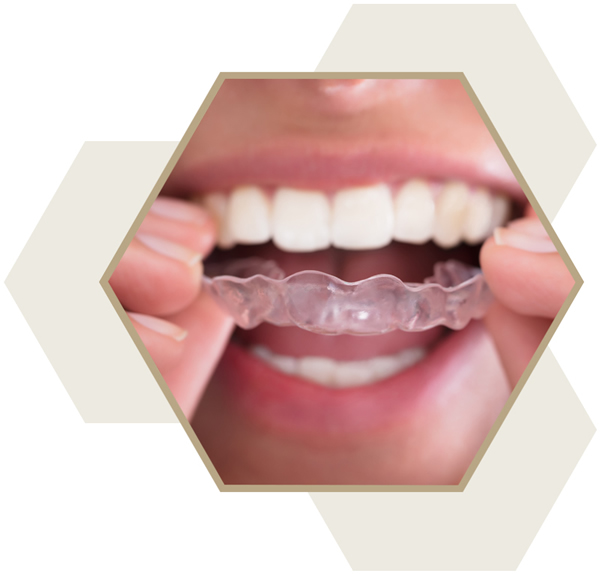Teeth Grinding Treatment in Milton Keynes
If you’re looking for a trusted, highly rated dental practice for effective teeth grinding treatment in Milton Keynes, we can help.
We have a superb team of experienced dentists who will be able to tackle the condition and protect your teeth from damage.

Choose us and benefit from
- The only Milton Keynes dentist with 1200+ 5* Google reviews
- High skilled and experienced dental team
- The largest private dental practice in Milton Keynes
- Open 7 days a week
- Competitive prices
Book an appointment
Meet our team
We have an exceptional team of dentists who have in-depth knowledge of bruxism (teeth grinding) and can offer effective options for tackling the condition.
What are the signs of teeth grinding?
- Teeth that are worn-down or damaged
- Pain in the face, neck and shoulder areas
- A sore jaw
- Increased tooth sensitivity
- Regular headaches or ear pain
- Disrupted sleep
What is teeth grinding?
Teeth grinding (also known as bruxism) happens when the jaws become clenched and teeth rub against each other as a result. It often happens without the person realising and is typically related to anxiety or stress.
The condition can occur in both adults and children, though it most commonly affects those between the ages of 25 and 44. Bruxism is not related to the regular functions of the mouth such as speaking or chewing.
Many people clench their teeth at some point, usually in the day time and as a result of stress. Teeth grinding, however, typically occurs through the night and can be hard to detect unless you are aware of the resulting symptoms, or your partner can hear the sound of the teeth coming together.
How we can help
After carefully listening to you about the symptoms you’re experiencing, the dentist will carry out a thorough examination of your teeth, mouth and jaw. They will then be able to advise you on the best course of action.
We offer excellent mouthguards that can be worn through the night to protect your teeth. These keep the jaws comfortably in position, reduce pain and alleviate other related symptoms.
Where appropriate, we can also provide a referral for Botox injections into the masseter muscle (jaw area). This is a popular and effective treatment for both jaw pain and teeth grinding, as it relaxes the jaw and can significantly relieve the associated pain and other symptoms.
Teeth grinding FAQs
If left untreated teeth grinding can lead to a number of issues including:
- Muscular pain and headaches
- Tooth loosening or loss
- Gum recession
- Sensitivity when eating and drinking
- Fractured or broken teeth
- Damage to the bone structure of the jaw joint
Teeth grinding is usually related to stress, though it can have other underlying causes.
Your dentist will seek to get as full a picture of your symptoms as possible and will consider the involvement of other potential factors.
Roughly 15 to 33% of children present with the behaviour at some stage, primarily during sleep.
It usually occurs at two key stages. Firstly, when the baby teeth start to show and then later when the permanent teeth come through. The issue usually subsides once these teeth become settled.
The exact cause for this is unknown, yet there are several theories. These include improper teeth alignment, irregular contact between the upper and lower sets of teeth, physical illness, nutritional deficiencies or psychological issues resulting from anxiety.
Grinding of the baby teeth is usually not a problem, though it can be painful and may also cause headaches, tooth wear and TMJ disorder. If your child’s teeth appear worn, or they complain of sensitivity or pain, consult a dentist straight away.
See inside the best dental practice in Milton Keynes





